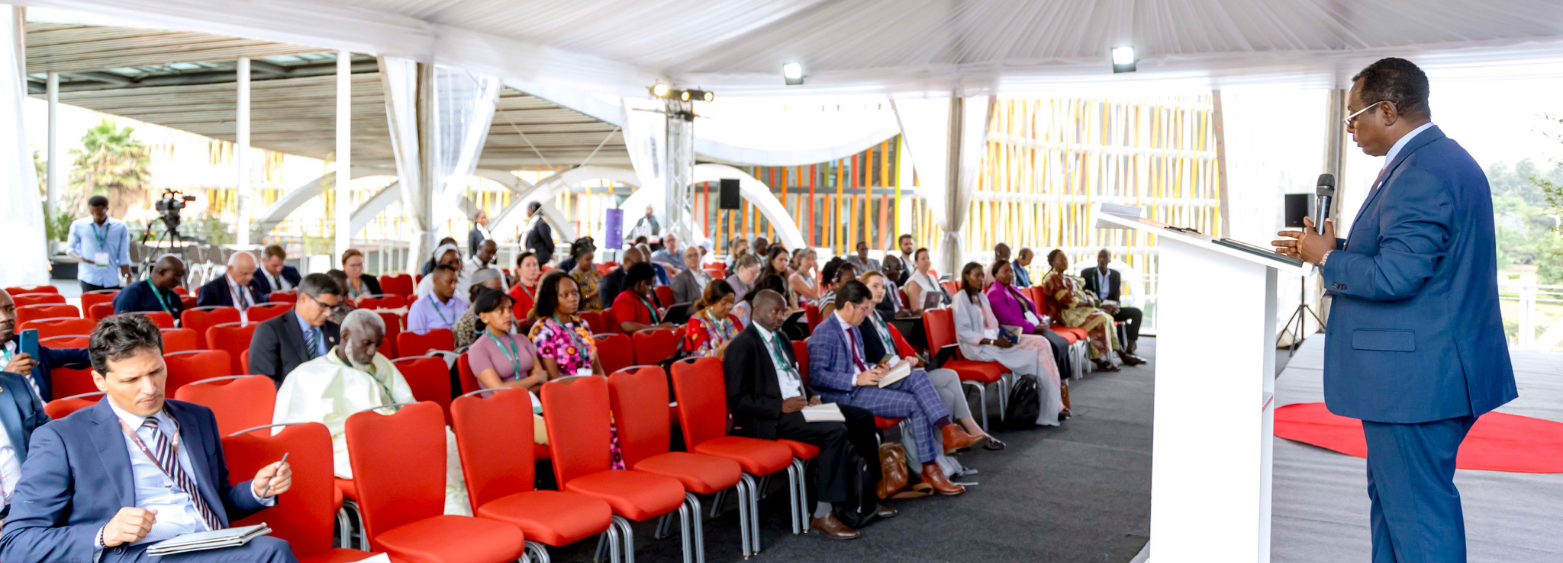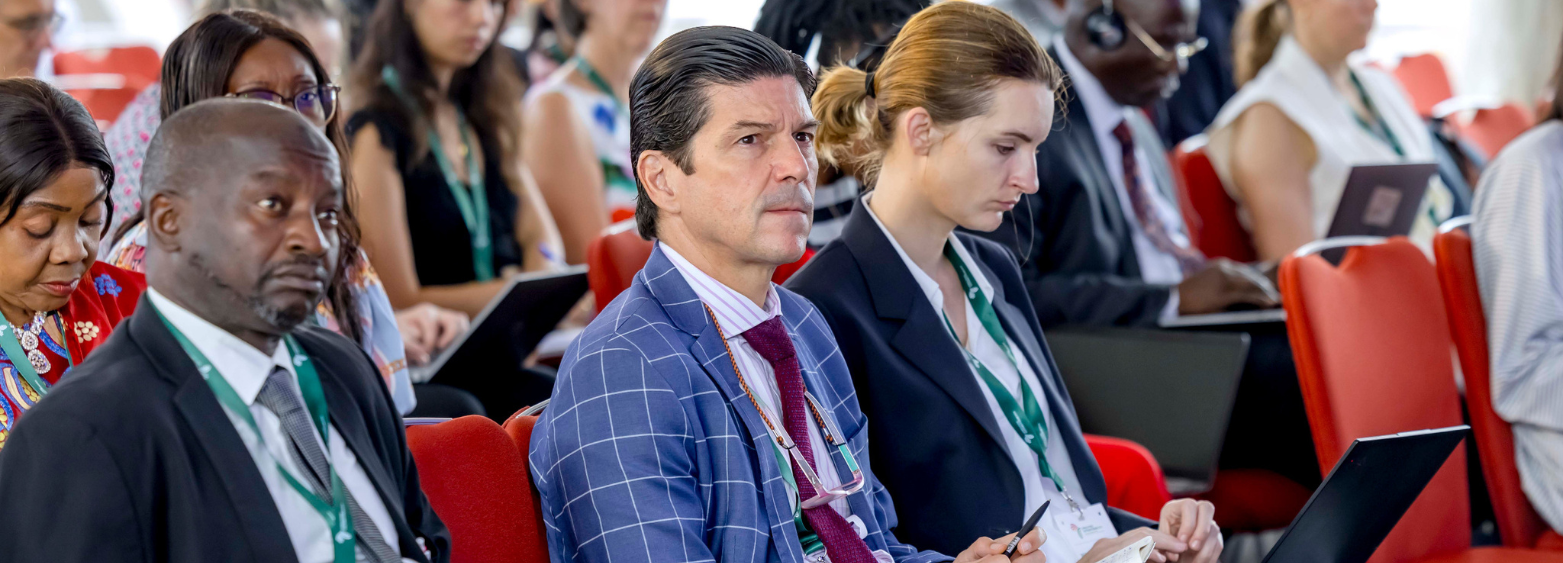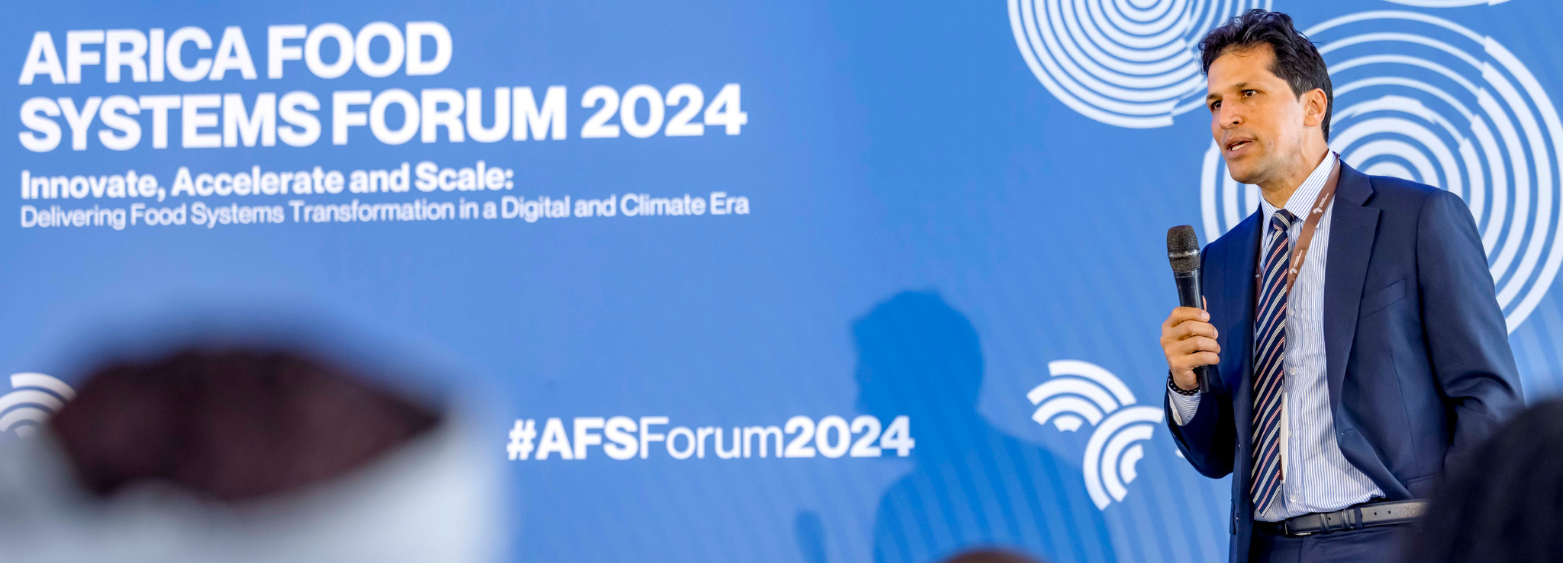SEED FUNDING JOINT PROGRAMMES
Egypt
Strengthening Sustainable and Resilient Food and Nutrition Systems in Egypt for SDG Acceleration




PROJECT TITLE | Strengthening Sustainable and Resilient Food and Nutrition Systems in Egypt for SDG Acceleration |
| Context | Egypt engaged actively in the 2021 Food Systems Summit process, convening a national dialogue and developing national pathways with recommended interventions for improving food security and nutrition by 2030. To enhance multi-sectorial coordination and spearhead the transformation process, the Government created a National Committee for Food and Nutrition Systems chaired by the Prime Minister and bringing together several ministries to coordinate joint actions. Strengthening coordination mechanisms, fostering multi-stakeholder partnerships, consolidating accountability structures, focusing on the availability of evidence, analysis, and data, are identified as key priorities to strengthen the food systems governance structure in Egypt. |
| PUNOs | WFP, FAO, UNICEF |
| Contribution to SDGs | SDG 2 Zero Hunger, SDG 3 Good Health and Well-being, 12 Responsible Consumption and Production. |
| Contribution to other SDG transitions | Climate, biodiversity, pollution |
| Duration | June 2024 – May 2025 |
| Expected financial leverage | $87,000 (PUNO co-financing) |
| Alignment with SG Call to Action | Policy integration; Food systems governance; Research, data, technology and innovation; Inclusive and participatory design; Private sector engagement |
| Outcomes | The JP contributes to strengthening policy and governance frameworks for food systems transformation and generating evidence and analysis on key dimensions of food systems to inform decision-making, supporting the work of the National Committee for Food and Nutrition Systems. The JP complements the government’s flagship program “Country Platform for the Nexus of Water, Food and Energy”, which provides a mechanism to mobilize climate finance and private investments. |
| Partners |
|
| Outputs |
|
AFS Forum 2024: National Convenors at the heart of Africa’s food systems transformation

4 September 2024, Kigali – National Convenors hold a unique role at the intersection of policy, coordination, and implementation, driving food systems transformation across Africa. At the AFS Forum 2024, a partner side event organized by the UN Food Systems Coordination Hub (the Hub) and AGRA brought together National Convenors, government officials, stakeholders, and international partners to exchange experiences and insights. The event underscored the Convenors' essential role in advancing a "whole-of-government" approach to food systems transformation, emphasizing the urgent need for cross-sectoral collaboration in agriculture, climate, and livelihoods—particularly as Africa finalizes the review of the CAADP-Malabo framework and formulates the post-Malabo CAADP.
Opening remarks: Moving beyond declarations
The event opened with remarks from Abebe Haile-Gabriel, Assistant Director-General and Regional Representative for Africa at FAO, who stressed the opportunity and responsibility Africa faces in transforming its food systems. “It is not just a priority, it is an opportunity we must seize,” Haile-Gabriel stated, emphasizing the importance of moving beyond policy declarations to concrete actions. He underscored the need for significant investment—$28.5 to $36.6 billion USD annually —to tackle hunger and malnutrition in Africa.
Khaled Eltaweel, Senior Programme Coordinator at the Hub, emphasized the pivotal role Convenors play in ensuring effective implementation of national food systems pathways. He highlighted how Convenors help align national objectives and coordinate efforts across ministries, driving progress and fostering collaboration throughout the process.
Boaz Keizire, Head of Policy and Food Systems at AGRA, echoed the importance of Convenors’ work, stating, “You are the frontlines, the champions in your countries to advance a complex idea but simplify it at the national level.” Keizire acknowledged the challenges Convenors face in navigating intricate national structures to implement food systems transformation.
David Nabarro, Strategic Director of 4SD Foundation, commended the perseverance of National Convenors, acknowledging their crucial role in driving food systems transformation since 2021. "You are pushing forward the agenda and showing just how transformation is done in practice," he said, emphasizing the importance of their continued efforts despite the complexity of the task.
Building cross-sector connections
Martin Bwalya, Senior Food Systems Specialist at the Hub, emphasized the essential role of National Convenors in facilitating collaboration across sectors. He pointed to the launch of the Hub’s Convergence Initiative at COP28, designed to bring together efforts on food systems and climate action. “National Convenors are key in leveraging all the capabilities existing and making the transformation happen,” Bwalya remarked.
He explained that food systems transformation requires integration across agriculture, climate, and livelihoods. Convenors, with their mandate to connect ministries and stakeholders, are uniquely positioned to coordinate these efforts. Bwalya noted Africa’s leadership in developing food systems pathways and added that “now it’s time to turn plans into concrete actions.”

Participants at the side event.
National Convenors share experiences from the ground
In the open plenary, African Convenors discussed their experiences in leading food systems transformation, focusing on two themes: the strengths and areas for improvement in National Convenors' roles, and key success factors for aligning agriculture, food, climate, and livelihoods in their country contexts.Common themes included the importance of political support, financial empowerment, and cross-sector collaboration. More than 15 interventions were shared by National Convenors and youth participants from the Hub’s Food Systems Youth Leadership Program. Here are some highlights:
In Sierra Leone, the National Convenor is positioned within the Office of the Vice President, significantly enhancing the ability to coordinate across ministries. “When a letter comes from the Vice President’s office, it ensures attention and action,” Sierra Leone’s SUN representative explained, illustrating how political positioning can drive the food systems agenda. This high-level support ensures that ministries related to agriculture, health, trade, among others, are also engaged in the transformation process.
Botswana highlighted the country’s strategy of utilizing existing multi-sectoral committees to drive food systems transformation, along with the need for gender mainstreaming and youth involvement in food systems transformation. Multiple countries also emphasized the need for greater technical and financial resources. Cameroon added that additional funding is required to facilitate inter-ministerial cooperation and participate in international forums, which help elevate national efforts and attract external support.
Kenya highlighted the country’s use of a steering committee, chaired by the National Convenor and Cabinet Secretary for Agriculture, to coordinate food systems transformation across multiple ministries. She emphasized the importance of shared ownership and the development of tools for tracking financial flows and stakeholder engagement, ensuring that food systems transformation remains a government-wide priority.
Challenges remain, however. Lesotho raised concerns about maintaining momentum when there is a change of government. He noted that new administrations often require re-engagement and re-education on the food systems agenda, which can slow progress.
Connecting agriculture, climate, and livelihoods
The need for better coordination across agriculture, climate, and livelihoods was a key theme during the discussions. Uganda emphasized the importance of expanding stakeholder engagement to include sectors like urbanization and industrialization, which directly impact food systems. As Uganda continues to urbanize, the need for integrated, effective food systems becomes increasingly urgent.
Ethiopia shared a model of successful inter-ministerial collaboration, with 14 ministries and one commission working together to coordinate food systems and nutrition efforts. By aligning food systems transformation with climate and economic policies, Ethiopia is developing a more resilient, multi-sectoral approach.
Somalia shared the country's plans to integrate food systems and climate into its National Transformational Plan for the first time, making these areas a central pillar of its national development strategy.
Several countries also highlighted the importance of robust monitoring and evaluation (M&E) systems to track progress and guide decision-making. Without these systems, it is difficult to measure the success of initiatives or adjust strategies.
Empowering National Convenors to lead
In his closing remarks, Khaled Eltaweel emphasized three key pillars for empowering National Convenors: political support, empowerment, and inclusivity. “Political support is the first and most important pillar of success. When National Convenors are empowered from the highest offices, transformation follows,” he noted.
Eltaweel also underscored the need for technical and financial resources to ensure Convenors can fulfill their roles effectively. Additionally, he highlighted the importance of inclusivity in food systems transformation, calling for the active involvement of youth, women, and marginalized groups in national processes.
Eltaweel concluded by reaffirming the Hub’s commitment to supporting National Convenors, stating, "As we prepare for the next Stocktaking Moment, we know Africa will have powerful progress to show."
With the collective efforts of National Convenors and the support of global partners, Africa’s journey towards sustainable and resilient food systems is gaining momentum, ensuring that agriculture, climate, and livelihoods work in harmony for the benefit of all.

Khaled Eltaweel of the Hub giving closing remarks.
Watch the recording
Related materials
